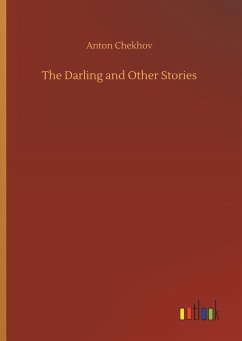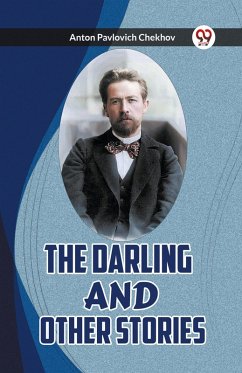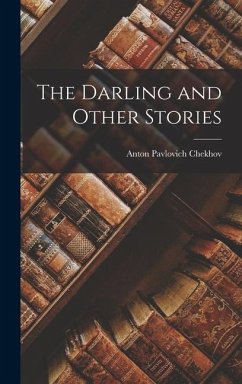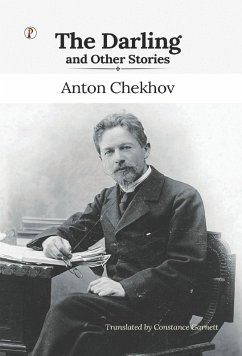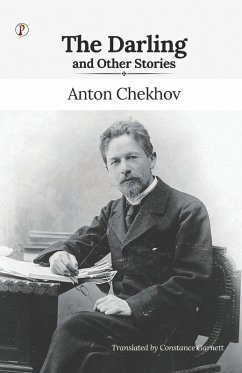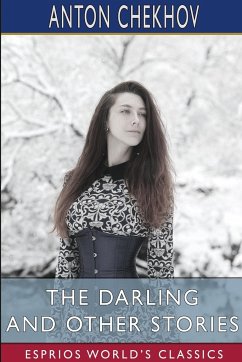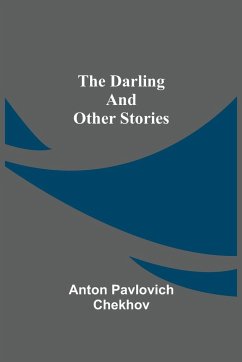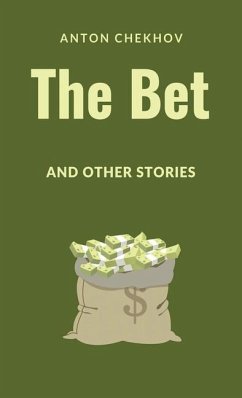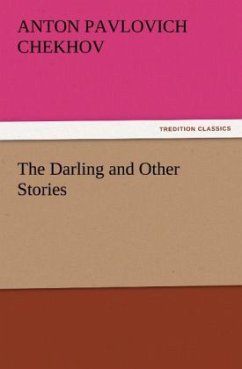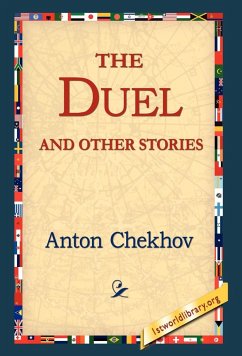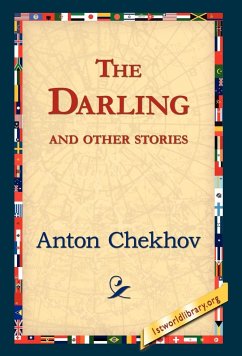
The Darling and Other Stories
Versandkostenfrei!
Versandfertig in über 4 Wochen
27,99 €
inkl. MwSt.

PAYBACK Punkte
14 °P sammeln!
OLENKA, the daughter of the retired collegiate assessor, Plemyanniakov, was sitting in her back porch, lost in thought. It was hot, the flies were persistent and teasing, and it was pleasant to reflect that it would soon be evening. Dark rainclouds were gathering from the east, and bringing from time to time a breath of moisture in the air. Kukin, who was the manager of an open-air theatre called the Tivoli, and who lived in the lodge, was standing in the middle of the garden looking at the sky. "Again!" he observed despairingly. "It's going to rain again! Rain every day, as though to spite me...
OLENKA, the daughter of the retired collegiate assessor, Plemyanniakov, was sitting in her back porch, lost in thought. It was hot, the flies were persistent and teasing, and it was pleasant to reflect that it would soon be evening. Dark rainclouds were gathering from the east, and bringing from time to time a breath of moisture in the air. Kukin, who was the manager of an open-air theatre called the Tivoli, and who lived in the lodge, was standing in the middle of the garden looking at the sky. "Again!" he observed despairingly. "It's going to rain again! Rain every day, as though to spite me. I might as well hang myself! It's ruin! Fearful losses every day."



